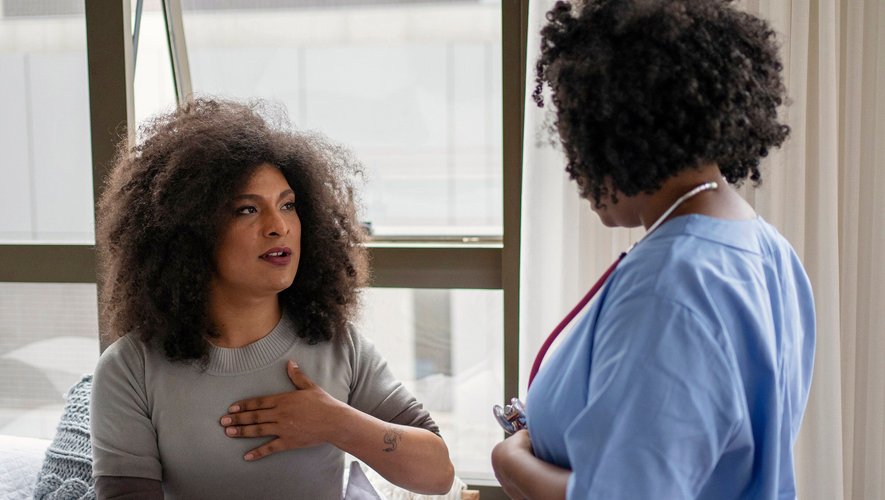(AFP) – Hormonal treatment, or advice for surgery: before starting their transition, many transgender people come up against the lack of doctors able to help them. But university training, followed this year by around thirty caregivers, intends to help remedy this.
Entitled “Accompaniment, care and health of trans people”, this course is validated by an inter-university diploma (DIU) issued by three faculties of medicine (Lyon, Marseille and Versailles Saint-Quentin-en-Yvelines). It aims to provide keys to caregivers wishing to get involved in the follow-up of the people concerned.
Because doctors “competent, benevolent, and who accept” to take care of transgender people remain rare, underlines Béatrice Denaes, co-president of the association Trans-Santé France, who receives in this regard “a lot of emails from trans people hopeless”.
Ms. Denaes, herself trans, began her medical transition in 2018. “At the time, it wasn’t too much of a hassle, even if my GP, although caring, didn’t know much about it.
But today the services are saturated”, because the number of transition requests is on the rise, she notes: in 2020, around 3,300 people were recognized by health insurance for a long-term condition (ALD) of “gender dysphoria”, ten times more than in 2013, according to a report submitted in early 2022 to the Ministry of Health.
The few specialized doctors would therefore have a lot to gain from relying on pediatricians and general practitioners to support and inform patients in their transition, explains Elodie Fiot, pediatric endocrinologist at the Robert-Debré hospital in Paris (AP-HP), who takes care of trans teenagers and intervenes in inter-university training.
In five two-day sessions, participants hear testimonies from trans people, and address topics such as “post-transition follow-up of hormone therapies”, fertility preservation, or even gender-affirming genital surgeries. They must then write a dissertation and do internships with involved caregivers.
– “Drive belt” –
This diploma “will give me legitimacy, it will now be possible to send me transgender patients more easily”, estimates Sophie Gibert, general practitioner in Bordeaux.
Like other participants, she admits having already had to deal with these questions in her professional practice, without necessarily having all the answers. She thus follows a 16-year-old transgender teenager, “in great pain”, and faced with a two-year wait before getting an appointment with the only specialized child psychiatrist in her region.
“I see her every month in consultation. We have not yet granted her request for hormone therapy, but the simple fact that she is listened to, she is better, and I am in contact with other doctors to try to coordinate its follow-up”, explains the practitioner, who displays a pin in LGBT colors on her blouse, “without activism but so that people feel comfortable”.
With only about thirty doctors trained this year, there is still a long way to go before the entire medical profession is made aware. But “we can be a transmission belt for our colleagues”, analyzes another “student”, Axel Descamps, a young general practitioner who practices near Valenciennes (North), where he has a few transgender people among his patients.
As a caregiver, “we have the right not to know everything, but we have the obligation to find out”, says Dr Descamps, who also teaches at the Faculty of Medicine of Lille where he will set up the next year a three-hour module on transgender issues, for all future GPs.
The demand for training is “growing” among doctors, who feel “helpless” in the face of these questions, analyzes one of the heads of the DIU, François-Xavier Madec. And the subject is not only of interest to activists, underlines this urological surgeon at the Foch hospital in Suresnes (Hauts-de-Seine), where he is one of the rare experts in France to carry out “gender reassignment” operations. .
“There is no need to have any particular convictions to take care of trans people, as the benefits we give to patients are obvious”, he assures us.

